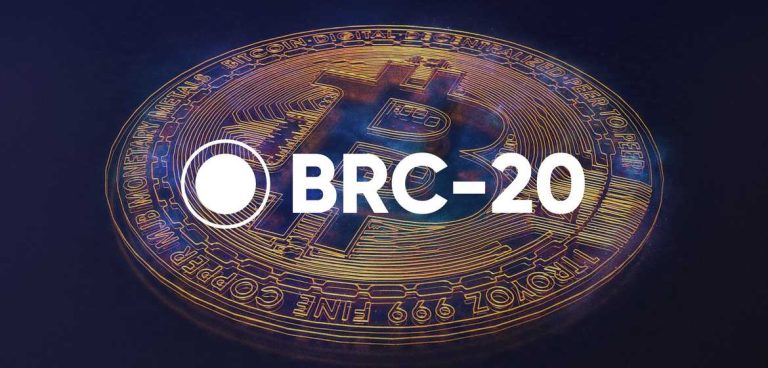Introduction
Coinbase is a leading cryptocurrency exchange platform. It enables individuals and businesses to buy, sell, and manage cryptocurrencies. Cryptocurrencies include Bitcoin, Ethereum, Dogecoin, and many others. Coinbase empowers users to navigate the crypto landscape. It does this by utilizing advanced trading tools and a secure personal crypto wallet. Additionally, its user-friendly educational rewards program fosters informed participation.
Overview and Background
In 2012, the cryptocurrency landscape had initial challenges. Brian Armstrong, a former Airbnb product manager, founded Coinbase. His belief in Bitcoin’s potential to change finance drove him. Armstrong identified key barriers to mass adoption. These included clunky wallet technology, a complex buying process, and limited merchant acceptance. Later, experienced trader Fred Ehrsam joined them. The duo aimed to create a secure platform for buying, selling, and storing Bitcoin.
Coinbase had two goals. It wanted to make crypto easier to access and to help more people use it. It focused on user-friendly platforms. The company rooted itself in financial inclusivity. It played a key role in the crypto revolution.
Armstrong recognized the need for a user-friendly wallet. He sought a seamless solution with British programmer Ben Reeves. But, Reeves later split from the team. Coinbase launched in 2012. It simplified Bitcoin access. It then expanded to Coinbase Exchange and Coinbase Pro for traders.
In 2019, Coinbase Prime addressed institutional needs, offering trading tools and secure custody. The company adapted to the pandemic in 2020. It became a pioneer in remote work. It also unveiled the Coinbase Visa Debit Card to bridge the online-offline gap.
In 2021, there were regulatory challenges. But, Coinbase showed resilience. It had a ninefold increase in Q1 sales. On April 14, 2021, Coinbase made history as the first major crypto exchange to go public on the Nasdaq.
Coinbase Wallet
Coinbase Wallet launched in 2017. It is a self-custody cryptocurrency wallet app. It has millions of users, making it one of the most downloaded options globally. Unlike the main Coinbase, the Wallet gives users control over their private keys. It appeals to those who want autonomy and transparency in the crypto space.
Coinbase Wallet supports many cryptocurrencies and tokens. It lets users manage diverse portfolios in one place. Its easy-to-use interface helps with transactions, staking, and DeFi exploration even for beginners. Strong security measures focus on asset protection. They include secure enclave technology, multi-signature protection, and two-factor authentication.
Beyond secure storage, Coinbase Wallet unlocks the gateway to DeFi and NFTs. It does this through seamless dApp integration. Its NFT storage and exchange features serve the changing demands of crypto fans. They confirm its place as a top player in DeFi and NFT. Coinbase Wallet is a top choice. It prioritizes user empowerment and flexible features. It helps users navigate the complexities of the crypto world.
Features and Functionality
Coinbase offers many features. You can use them for buying, selling, trading, and storing cryptocurrency. Here’s a breakdown of its key functionalities:
Buying and Selling:
- User-friendly interface: Simple and intuitive design, ideal for beginners.
- Multiple payment methods: Bank transfers, debit cards, credit cards, and PayPal.
- Wide range of currencies: Bitcoin, Ethereum, Litecoin, and many more (over 10,000).
Trading:
- Basic and advanced order types: Market orders, limit orders, and stop-loss orders.
- Coinbase Pro is a separate platform for experienced traders. It has lower fees and advanced features.
Storage:
- Secure wallets: Industry-standard security measures and insurance against loss.
- Multi-signature option: Enhanced security requiring multiple keys for transactions.
Additional Features:
- Coinbase Earn: Learn about different crypto projects and earn crypto rewards.
- Coinbase Visa debit card: Spend your cryptocurrency directly anywhere Visa is accepted.
- NFT marketplace: Buy, sell, and trade non-fungible tokens on the platform.
Risks and Challenges
- Competition is tough for Coinbase. It competes with other cryptocurrency exchanges. They may offer lower fees, more features, or more types of crypto assets. Coinbase also faces competition from banks. They may enter the crypto space or offer similar services.
- Regulatory Hurdles: Coinbase operates in a complex and ever-changing regulatory landscape. Each region has different rules for crypto. They force Coinbase to follow a mix of laws. These laws cover anti-money laundering, consumer protection, and securities. This compliance burden can limit growth and expose Coinbase to legal risks.
- Coinbase has to keep its platform and its users’ funds secure. Hackers and cyberattacks are a big threat. Coinbase claims to store 98% of its users’ crypto assets in offline cold storage. It says it has insurance for the remaining 2% in online hot wallets. However, Coinbase’s security measures are not guaranteed to be foolproof. And its insurance may not cover all losses from a breach.
- Scalability is a key issue for Coinbase. It has to handle growing demand and price swings in the crypto market. These may cause technical problems, like downtime, delays, or errors, on its platform. Coinbase has to invest in improving its infrastructure and customer support. It also needs to develop new products and features. This is key to keeping its market position and user satisfaction.
Advantages of Coinbase
- Unmatched Currency Depth: It’s impressive to see Coinbase’s big lineup of cryptocurrencies. It surpasses many other exchanges, especially for U.S. investors. It offers access to 250 digital assets. It’s not about big players like Bitcoin; there are also promising newcomers. It fits many investment paths. These paths are for experienced traders or beginners.
- Flexible Trading Interface: It’s clear that Coinbase gets that trading isn’t a one-size-fits-all affair. They’ve got you covered with two distinct interfaces. Simple Trade is for those who want a laid-back, beginner-friendly vibe. Advanced Trade has many robust tools. These include charts and real-time order books. They also have limit order control. It’s all about choice. Pick the platform that matches your comfort and skill. This will ensure your crypto journey is smooth and empowering.
- Boost Your Holdings with Cryptocurrency Knowledge: Coinbase Earn stands out by shifting away from passive investing. It encourages active participation. Users can earn free crypto through engaging modules on various projects. While the rewards may not be substantial, each quick lesson takes under a minute, offering a gamified and enjoyable approach to crypto education. Whether you’re a complete newcomer or an experienced hodler, Coinbase Earn provides an opportunity to enhance both your knowledge and portfolio simultaneously.
- Crypto that Multiplies: Coinbase turns crypto into an active asset. You can earn interest on stablecoins like USDC, with automatic monthly credits. Take it a step further by staking Ethereum, Solana, and other supported currencies, actively contributing to blockchain networks and reaping rewards. Eligibility varies, so explore your options in the app. For the inquisitive minds, there’s also the opportunity to earn crypto through brief, engaging courses. It’s an intriguing blend of financial growth and continuous learning.
Conclusion
Coinbase democratizes cryptocurrency, equipping individuals and businesses with an intuitive platform to buy, sell, and secure digital assets like Bitcoin, Ethereum, and Dogecoin. Beyond everyday transactions, Coinbase empowers users with advanced trading tools, educational rewards, and dedicated institutional services, all under one trusted roof. With over 73 million verified users across the globe, Coinbase is paving the path for a more inclusive and accessible financial future.
Sources:
https://www.fool.com/the-ascent/cryptocurrency/coinbase-review/
https://pontem.network/posts/an-overview-of-coinbase
https://www.coinbase.com/
https://www.cbinsights.com/research/report/coinbase-strategy-teardown/




